Congratulations to PhD student Justus Will and faculty Stephan Mandt and Pierre Baldi for being part of the team that won the Outstanding Dataset Paper award at the NeurIPS 2023 Conference, for their paper ClimSim: A large multi-scale dataset for hybrid physics-ML climate emulation. The ClimSim dataset introduced in the paper is the largest-ever data compendium designed for machine learning-enhanced physics research.
By: Padhraic Smyth
New NSF AI Grant for Prof Rina Dechter
StandardComputer Science Professor Rina Dechter of UC Irvine’s Donald Bren School of Information and Computer Sciences (ICS) is one of five co-principal investigators for a $5 million, multi-institutional National Science Foundation grant titled “Causal Foundations of Decision Making and Learning.” The grant, which aims to revolutionize AI decision-making by advancing the science of causal inference is a collaboration between UCI, Columbia University, and USC.
NSF CAREER Awards for Stephan Mandt and Sameer Singh
StandardCongratulations to each of Professors Stephan Mandt and Sameer Singh for recently being awarded prestigious CAREER awards for basic research from the National Science Foundation. Professor Mandt’s research will focus on a unified set of mathematical and statistical tools for resource-efficient deep learning, with expected applications to new methods for compressing both neural networks and their data (e.g., images and video), as well as new algorithms for faster training. Professor Singh will develop new techniques and methodologies to address vulnerabilities in current state-of-the-art natural language processing models based on deep learning by developing several techniques in support of more robust training and evaluation, with applications to automated methods for finding and detecting problems in such models, explaining them to users, and fixing them.
New Book from Pierre Baldi on the Sciences and Deep Learning
StandardProfessor Pierre Baldi has published a new text that bridges the gap between deep learning and the natural sciences. Titled Deep Learning in Science (Cambridge University Press, 2021), the text provides readers with a perspective that there is “a principled, foundational approach to machine learning” and readers “are made aware of the many interesting applications in natural sciences as opposed to just in engineering and commerce” (quoting Professor Baldi).
Spring 2021
StandardLive Stream for all Spring 2021 CML Seminars
March 29 |
No Seminar
|
April 5th |
No Seminar
|
 Sanmi Koyejo Assistant Professor Department of Computer Science University of Illinois at Urbana-Champaign YouTube Stream: https://youtu.be/Ehqsp8vRLis Across healthcare, science, and engineering, we increasingly employ machine learning (ML) to automate decision-making that, in turn, affects our lives in profound ways. However, ML can fail, with significant and long-lasting consequences. Reliably measuring such failures is the first step towards building robust and trustworthy learning machines. Consider algorithmic fairness, where widely-deployed fairness metrics can exacerbate group disparities and result in discriminatory outcomes. Moreover, existing metrics are often incompatible. Hence, selecting fairness metrics is an open problem. Measurement is also crucial for robustness, particularly in federated learning with error-prone devices. Here, once again, models constructed using well-accepted robustness metrics can fail. Across ML applications, the dire consequences of mismeasurement are a recurring theme. This talk will outline emerging strategies for addressing the measurement gap in ML and how this impacts trustworthiness.
Bio: Sanmi (Oluwasanmi) Koyejo is an Assistant Professor in the Department of Computer Science at the University of Illinois at Urbana-Champaign. Koyejo’s research interests are in developing the principles and practice of trustworthy machine learning. Additionally, Koyejo focuses on applications to neuroscience and healthcare. Koyejo completed his Ph.D. in Electrical Engineering at the University of Texas at Austin, advised by Joydeep Ghosh, and completed postdoctoral research at Stanford University. His postdoctoral research was primarily with Russell A. Poldrack and Pradeep Ravikumar. Koyejo has been the recipient of several awards, including a best paper award from the conference on uncertainty in artificial intelligence (UAI), a Sloan Fellowship, a Kavli Fellowship, an IJCAI early career spotlight, and a trainee award from the Organization for Human Brain Mapping (OHBM). Koyejo serves on the board of the Black in AI organization. |
|
April 19th Sponsored by the Steckler Center for Responsible, Ethical, and Accessible Technology (CREATE) 4 pm (Note change in time) |
 Kate Crawford Senior Principal Researcher, Microsoft Research, New York Distinguished Visiting Fellow at the University of Melbourne Where do the motivating ideas behind Artificial Intelligence come from and what do they imply? What claims to universality or particularity are made by AI systems? How do the movements of ideas, data, and materials shape the present and likely futures of AI development? Join us for a conversation with social scientist and AI scholar Kate Crawford about the intellectual history and geopolitical contexts of contemporary AI research and practice.
Bio: Kate Crawford is a leading scholar of the social and political implications of artificial intelligence. Over her 20-year career, her work has focused on understanding large-scale data systems, machine learning and AI in the wider contexts of history, politics, labor, and the environment. She is a Research Professor of Communication and STS at USC Annenberg, a Senior Principal Researcher at MSR-NYC, and the inaugural Visiting Chair for AI and Justice at the École Normale Supérieure in Paris, In 2021, she will be the Miegunyah Distinguished Visiting Fellow at the University of Melbourne, and has been appointed an Honorary Professor at the University of Sydney. She previously co-founded the AI Now Institute at New York University. Kate has advised policy makers in the United Nations, the Federal Trade Commission, the European Parliament, and the White House. Her academic research has been published in journals such as Nature, New Media & Society, Science, Technology & Human Values and Information, Communication & Society. Beyond academic journals, Kate has also written for The New York Times, The Atlantic, Harpers’ Magazine, among others. |
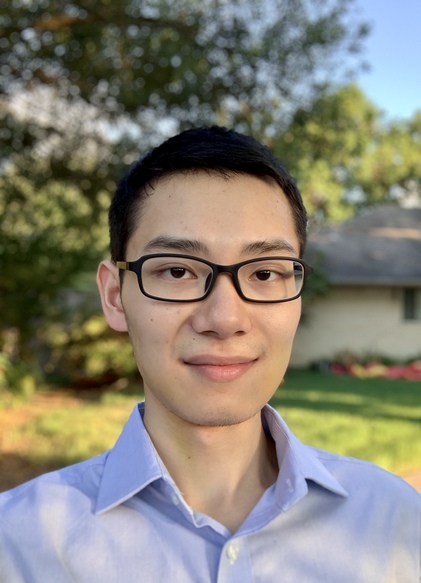 Yibo Yang PhD Student Department of Computer Science University of California, Irvine YouTube Stream: https://youtu.be/1lXKUhBTHWc Probabilistic machine learning, particularly deep learning, is reshaping the field of data compression. Recent work has established a close connection between lossy data compression and latent variable models such as variational autoencoders (VAEs), and VAEs are now the building blocks of many learning-based lossy compression algorithms that are trained on massive amounts of unlabeled data. In this talk, I give a brief overview of learned data compression, including the current paradigm of end-to-end lossy compression with VAEs, and present my research that addresses some of its limitations and explores other possibilities of learned data compression. First, I present algorithmic improvements inspired by variational inference that push the performance limits of VAE-based lossy compression, resulting in a new state-of-the-art performance on image compression. Then, I introduce a new algorithm that compresses the variational posteriors of pre-trained latent variable models, and allows for variable-bitrate lossy compression with a vanilla VAE. Lastly, I discuss ongoing work that explores fundamental bounds on the theoretical performance of lossy compression algorithms, using the tools of stochastic approximation and deep learning.
Bio: Yibo Yang is a PhD student advised by Stephan Mandt in the Computer Science department at UC Irvine. His research interests include probability theory, information theory, and their applications in statistical machine learning. |
|
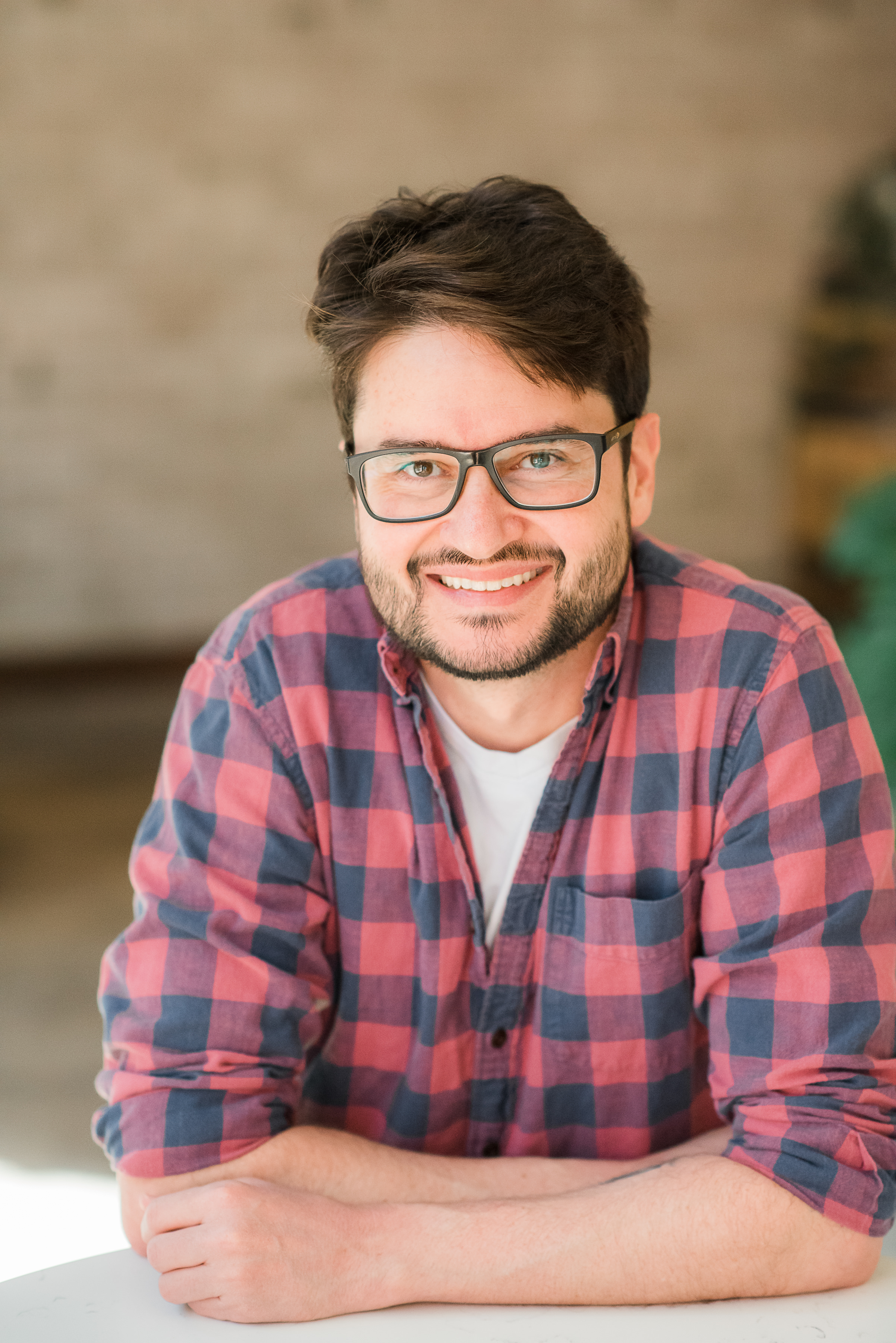 Levi Lelis Assistant Professor Department of Computer Science University of Alberta YouTube Stream: https://youtu.be/76NFMs9pHEE In this talk I will describe two tree search algorithms that use a policy to guide the search. I will start with Levin tree search (LTS), a best-first search algorithm that has guarantees on the number of nodes it needs to expand to solve state-space search problems. These guarantees are based on the quality of the policy it employs. I will then describe Policy-Guided Heuristic Search (PHS), another best-first search algorithm that uses both a policy and a heuristic function to guide the search. PHS also has guarantees on the number of nodes it expands, which are based on the quality of the policy and of the heuristic function employed. I will then present empirical results showing that LTS and PHS compare favorably with A*, Weighted A*, Greedy Best-First Search, and PUCT on a set of single-agent shortest-path problems.
Bio: Levi Lelis is an Assistant Professor at the University of Alberta, Canada, and a Professor on leave from Universidade Federal de Viçosa, Brazil. Levi is interested in heuristic search, machine learning, and program synthesis. |
|
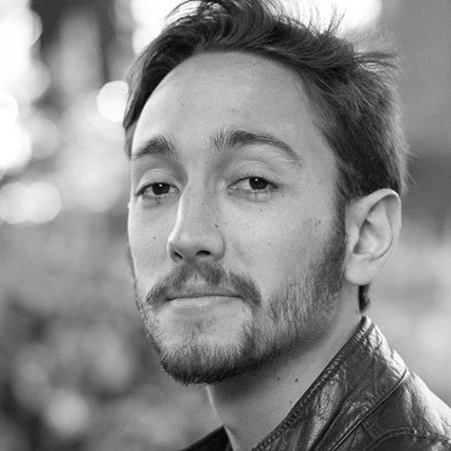 David Alvarez-Melis Postdoctoral Researcher Microsoft Research New England YouTube Stream: https://youtu.be/52bQ_XUY2DQ Abstract: Success stories in machine learning seem to be ubiquitous, but they tend to be concentrated on ‘ideal’ scenarios where clean labeled data are abundant, evaluation metrics are unambiguous, and operational constraints are rare — if at all existent. But machine learning in practice is rarely so ‘pristine’; clean data is often scarce, resources are limited, and constraints (e.g., privacy, transparency) abound in most real-life applications. In this talk we will explore how to reconcile these paradigms along two main axes: (i) learning with scarce or heterogeneous data, and (ii) making complex models, such as neural networks, interpretable.
First, I will present various approaches that I have developed for ‘amplifying’ (e.g, merging, transforming, interpolating) datasets based on the theory of Optimal Transport. Through applications in machine translation, transfer learning, and dataset shaping, I will show that besides enjoying sound theoretical footing, these approaches yield efficient and high-performing algorithms. In the second part of the talk, I will present some of my work on designing methods to extract ‘explanations’ from complex models and on imposing on them some basic formal notions that I argue any interpretability method should satisfy, but which most lack. Finally, I will present a novel framework for interpretable machine learning that takes inspiration from the study of (human) explanation in the social sciences, and whose evaluation through user studies yields insights about the promise (and limitations) of interpretable AI tools.
Bio: David Alvarez-Melis is a postdoctoral researcher in the Machine Learning and Statistics Group at Microsoft Research, New England. He recently obtained a Ph.D. in computer science from MIT advised by Tommi Jaakkola, and holds B.Sc. and M.S. degrees in mathematics from ITAM and Courant Institute (NYU), respectively. He has previously spent time at IBM Research and is a recipient of CONACYT, Hewlett Packard, and AI2 awards. |
|
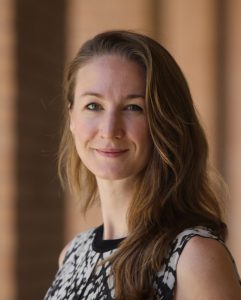 Megan Peters Assistant Professor Department of Cognitive Sciences UC Irvine YouTube Stream: https://youtu.be/i9Cenn0stxE Abstract: TBA
Bio: In March 2020 I joined the UCI Department of Cognitive Sciences. I’m also a Cooperating Researcher in the Department of Decoded Neurofeedback at Advanced Telecommunications Research Institute International in Kyoto, Japan. Prior to that, from 2017 I was on the faculty at UC Riverside in the Department of Bioengineering. I received my Ph.D. in computational cognitive neuroscience (psychology) from UCLA, and then was a postdoc there as well. My research aims to reveal how the brain represents and uses uncertainty, and performs adaptive computations based on noisy, incomplete information. I specifically focus on how these abilities support metacognitive evaluations of the quality of (mostly perceptual) decisions, and how these processes might relate to phenomenology and conscious awareness. I use neuroimaging, computational modeling, machine learning and neural stimulation techniques to study these topics. |
|
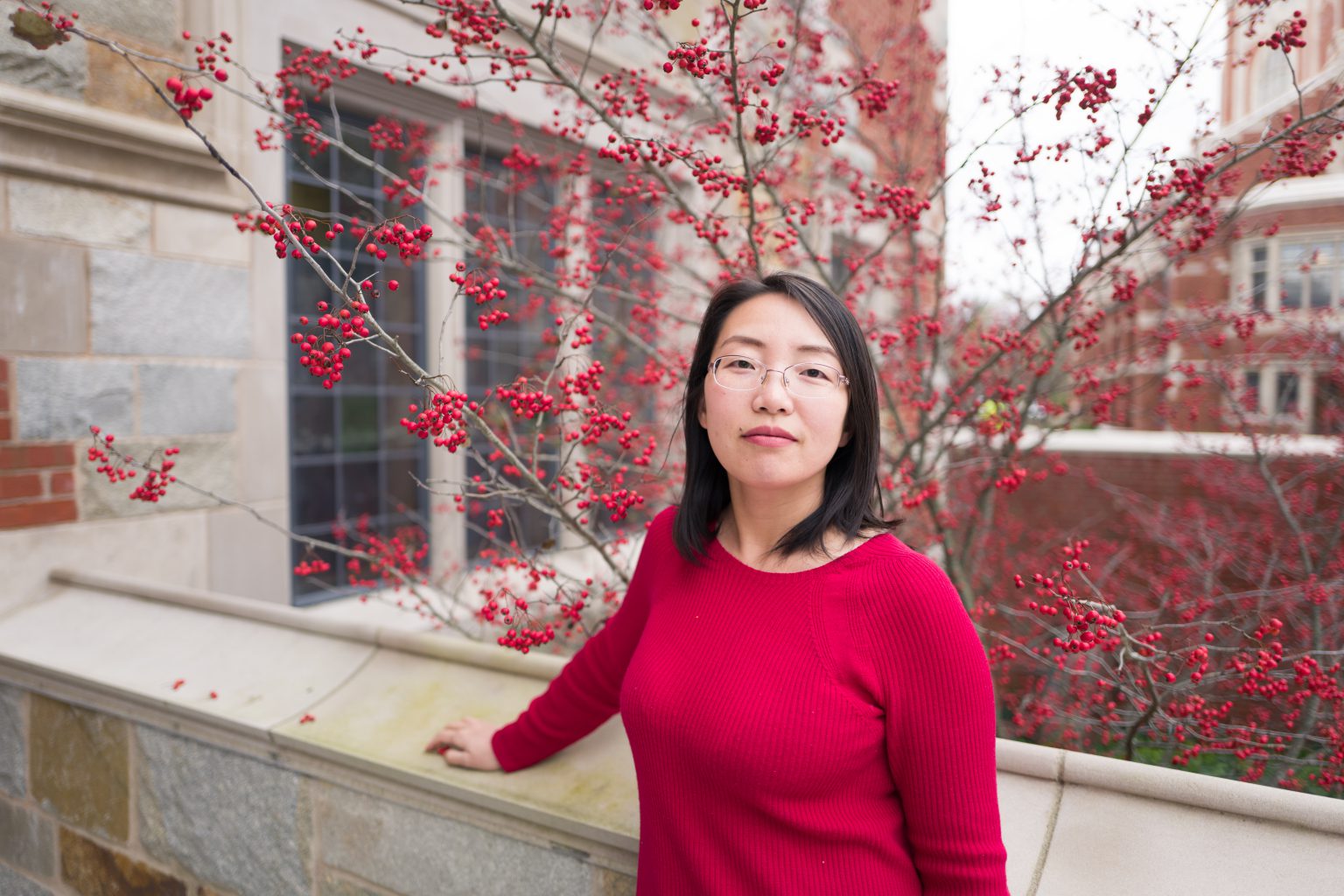 Jing Zhang Assistant Professor Department of Computer Science University of California, Irvine YouTube Stream: https://youtu.be/HPPq5Xvlr9c The recent advances in sequencing technologies provide unprecedented opportunities to decipher
the multi-scale gene regulatory grammars at diverse cellular states. Here, we will introduce our
computational efforts on cell/gene representation learning to extract biologically meaningful
information from high-dimensional, sparse, and noisy genomic data. First, we proposed a deep
generative model, named SAILER, to learn the low-dimensional latent cell representations from
single-cell epigenetic data for accurate cell state characterization. SAILER adopted the
conventional encoder-decoder framework and imposed additional constraints for biologically
robust cell embeddings invariant to confounding factors. Then at the network level, we
developed TopicNet using latent Dirichlet allocation (LDA) to extract latent gene communities
and quantify regulatory network connectivity changes (network “rewiring”) between diverse cell
states. We applied our TopicNet model on 13 different cancer types and highlighted gene
communities that impact patient prognosis in multiple cancer types.
Bio: Dr. Zhang is an Assistant Professor at UCI. Her research interests are in the areas of bioinformatics and computational biology. She graduated from USC Electrical Engineering under the supervision of Dr. Liang Chen and Dr. C.C Jay Kuo. She completed her postdoc training at Yale University in Dr. Mark Gerstein’s lab. During her postdoc, she has developed several computational methods to integrate novel high-throughput sequencing assays to decipher the gene regulation “grammar”. Her current research focuses on developing computational methods to predict the impact of genomic variations on genome function and phenotype at a single-cell resolution. |
|
May 31 |
No Seminar (Memorial Day)
|
June 7th |
No Seminar (Finals Week)
|
AI/NLP Research Partnership with Allen Institute for AI (AI2)
Image
Professor Sameer Singh and his group have developed a thriving partnership working with researcher Dr. Matt Gardner and colleagues from the Allen Institute for AI (AI2), producing a series of high-profile papers in the past several months on topics such as language modeling and automated question answering systems. AI2 is providing funding to support graduate student researchers who work closely with AI2 researchers co-located in the Computer Science Department in Donald Bren Hall.
Research funding from Qualcomm AI/ML Research Labs
StandardQualcomm Inc. has provided gift funding of $255,000 to Computer Science Professors Charless Fowlkes, Stephan Mandt and Padhraic Smyth. This funding will support Ph.D. students involved in basic research projects across the three groups on topics related to the development of new theories and algorithms in the areas of computer vision and machine learning.
The funded projects will involve collaborations with Qualcomm’s rapidly expanding research and development work in artificial intelligence, with a particular focus on Qualcomm AI/ML research labs in San Diego and Amsterdam.
UCI group develops deep learning approach for Rubik’s cube
Image
Professor Pierre Baldi, with PhD students Forest Agostinelli and Stephen McAleer, and senior Alexander Shmakov, have developed a deep reinforcement learning approach to solve Rubik’s cube problems, solving typical problems in about 20 moves. The work was published in Nature Machine Intelligence.
Two new NSF awards in Machine Learning for Sameer Singh
Standard Congratulations to Professor Sameer Singh for receiving two multi-year research awards from the National Science Foundation (NSF). Under the first grant, Sameer and his research team will develop new algorithms to better explain why classifiers make certain decisions, increasing user trust in such models. The second grant focuses on the development of new approached for extracting multimodal information from documents, such as text, images, numbers, and databases, with the goal of automatically creating new knowledge bases from relatively unstructured written documents.
Congratulations to Professor Sameer Singh for receiving two multi-year research awards from the National Science Foundation (NSF). Under the first grant, Sameer and his research team will develop new algorithms to better explain why classifiers make certain decisions, increasing user trust in such models. The second grant focuses on the development of new approached for extracting multimodal information from documents, such as text, images, numbers, and databases, with the goal of automatically creating new knowledge bases from relatively unstructured written documents.
PhD Students win Best Poster Awards
StandardCongratulations to CML graduate students for recent poster awards at the 2017 Southern California Machine Learning Symposium held at USC. Zhengli Zhao and Dheeru Dua (with advisor Sameer Singh) won best poster award for their work on generating natural adversarial examples and Eric Nalisnick (with advisor Padhraic Smyth) won honorable mention for his work on boosting variational inference. There were about 50 student posters presented and over 250 machine learning researchers attended the event. Next SoCal ML Symposium is scheduled for Fall 2018, to be hosted by UCLA.
